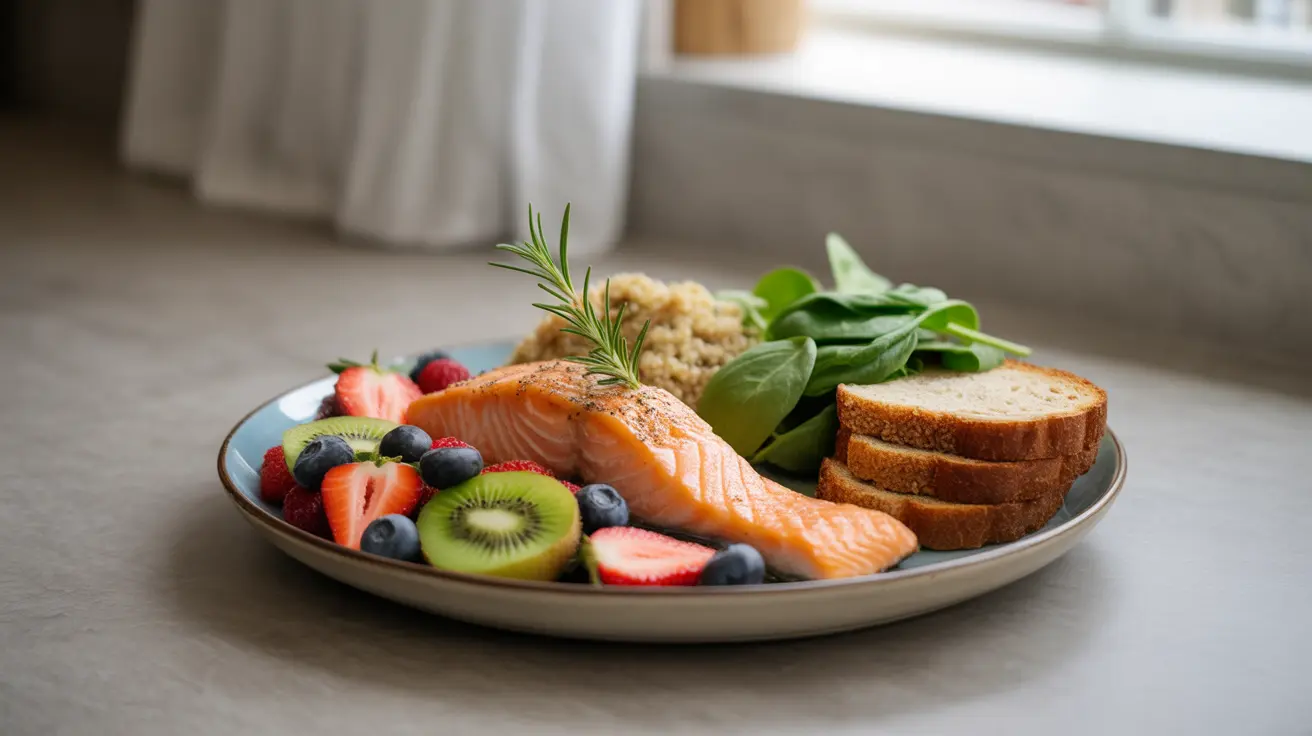Living with Chronic Obstructive Pulmonary Disease (COPD) presents unique challenges, but proper nutrition can significantly impact your quality of life and breathing ability. A well-planned COPD diet can help manage symptoms, maintain energy levels, and support overall lung function.
Understanding what to eat—and what to avoid—is crucial for individuals with COPD. This comprehensive guide will explore the most beneficial dietary choices and strategies to help you breathe easier and maintain optimal health.
Beneficial Foods for COPD Management
Certain foods can help reduce inflammation and support respiratory function. Including these nutritious options in your COPD diet can make a significant difference:
Anti-inflammatory Foods
- Fresh fruits rich in antioxidants
- Leafy green vegetables
- Fatty fish containing omega-3s
- Nuts and seeds
- Olive oil
Complex Carbohydrates
- Whole grain bread and pasta
- Brown rice
- Quinoa
- Sweet potatoes
- Oats
Hydration and COPD
Proper hydration is essential for managing COPD symptoms effectively. Drinking adequate water helps thin mucus secretions, making them easier to clear from your airways.
Aim to consume 6-8 glasses of water daily, unless your healthcare provider recommends otherwise. Consider these hydration tips:
- Sip water throughout the day
- Include clear broths in your diet
- Avoid caffeine and alcohol, which can be dehydrating
- Monitor your urine color as an indicator of hydration
Meal Planning Strategies
Smaller, Frequent Meals
Breaking your daily food intake into smaller, more frequent meals can help manage breathing difficulties and energy levels. This approach reduces pressure on your diaphragm and helps prevent fatigue during eating.
Timing Your Meals
- Eat your main meal earlier in the day
- Allow 2-3 hours between your last meal and bedtime
- Plan rest periods before and after meals
- Take your time while eating
Foods to Avoid with COPD
Some foods can worsen COPD symptoms or make breathing more difficult. Consider avoiding:
- Processed foods high in sodium
- Gas-producing foods like beans and carbonated beverages
- Fried and greasy foods
- Foods with added preservatives
- Empty calories that provide little nutritional value
Weight Management Tips
Maintaining a healthy weight is crucial for COPD management. Being either underweight or overweight can impact breathing and overall health.
If You Need to Gain Weight
- Choose nutrient-dense foods
- Add healthy fats to meals
- Include protein-rich foods at every meal
- Consider nutritional supplements approved by your healthcare provider
If You Need to Lose Weight
- Focus on portion control
- Choose low-calorie, nutrient-rich foods
- Incorporate gentle exercise as approved by your doctor
- Work with a registered dietitian for personalized guidance
Frequently Asked Questions
What are the best foods to include in a COPD diet for improving lung function?
Foods rich in antioxidants and anti-inflammatory properties are best, including fresh fruits, vegetables, fatty fish, and whole grains. These foods help reduce inflammation and support respiratory health.
How can proper hydration help manage COPD symptoms and mucus buildup?
Adequate hydration helps thin mucus secretions, making them easier to expel. This reduces congestion and helps maintain clear airways. Aim for 6-8 glasses of water daily.
Why should people with COPD eat smaller, more frequent meals instead of large ones?
Smaller meals reduce pressure on the diaphragm, making breathing easier during and after eating. This approach also helps maintain energy levels throughout the day and prevents fatigue.
What foods should individuals with COPD avoid to reduce breathing difficulties?
Avoid processed foods high in sodium, gas-producing foods, fried and greasy foods, and foods with added preservatives. These can worsen inflammation and make breathing more difficult.
How can someone with COPD manage their weight through diet and nutrition?
Focus on balanced nutrition with appropriate portion sizes. Work with a healthcare provider to determine ideal weight goals, and choose nutrient-dense foods that support either weight gain or loss as needed. Consider consulting a registered dietitian for personalized guidance.




